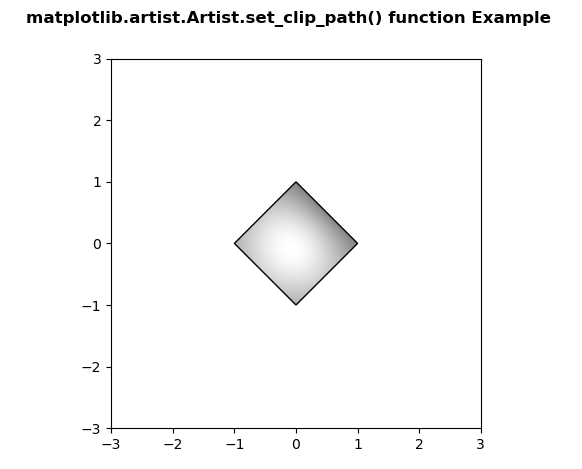Matplotlib es una biblioteca en Python y es una extensión matemática numérica para la biblioteca NumPy. La clase Artist contiene una clase base Abstract para objetos que se representan en un FigureCanvas. Todos los elementos visibles en una figura son subclases de Artista.
método matplotlib.artist.Artist.set_clip_path()
El método set_clip_path() en el módulo de artista de la biblioteca matplotlib se usa para establecer la ruta del clip del artista.
Sintaxis: Artist.set_clip_path(self, path, transform=Ninguno)
Parámetros: este método acepta solo dos parámetros.
- ruta: este parámetro es la ruta del clip.
- transform: este parámetro en el que Path se convierte en TransformedPath usando transform.
Devoluciones: este método no devuelve ningún valor.
Los siguientes ejemplos ilustran la función matplotlib.artist.Artist.set_clip_path() en matplotlib:
Ejemplo 1:
Imagen de entrada:
# Implementation of matplotlib function
from matplotlib.artist import Artist
import matplotlib.pyplot as plt
import matplotlib.patches as patches
import matplotlib.cbook as cbook
with cbook.get_sample_data('loggf.PNG') as image_file:
image = plt.imread(image_file)
fig, ax = plt.subplots()
im = ax.imshow(image)
patch = patches.Rectangle((10, 10),
560,
500,
transform = ax.transData)
Artist.set_clip_path(im, patch)
fig.suptitle('matplotlib.artist.Artist.set_clip_path()\
function Example', fontweight ="bold")
plt.show()
Producción:
Ejemplo 2:
# Implementation of matplotlib function
from matplotlib.artist import Artist
import numpy as np
import matplotlib.cm as cm
import matplotlib.pyplot as plt
from matplotlib.path import Path
from matplotlib.patches import PathPatch
delta = 0.025
x = y = np.arange(-3.0, 3.0, delta)
X, Y = np.meshgrid(x, y)
Z1 = np.exp(-X**2 - Y**2)
Z2 = np.exp(-(X - 1)**2 - (Y - 1)**2)
Z = (Z1 - Z2) * 2
path = Path([[0, 1], [1, 0], [0, -1],
[-1, 0], [0, 1]])
patch = PathPatch(path, facecolor ='none')
fig, ax = plt.subplots()
ax.add_patch(patch)
im = ax.imshow(Z,
interpolation ='bilinear',
cmap = cm.gray,
origin ='lower',
extent =[-3, 3, -3, 3],
clip_path = patch,
clip_on = True)
Artist.set_clip_path(im, patch)
fig.suptitle('matplotlib.artist.Artist.set_clip_path()\
function Example', fontweight ="bold")
plt.show()
Producción:
Publicación traducida automáticamente
Artículo escrito por SHUBHAMSINGH10 y traducido por Barcelona Geeks. The original can be accessed here. Licence: CCBY-SA